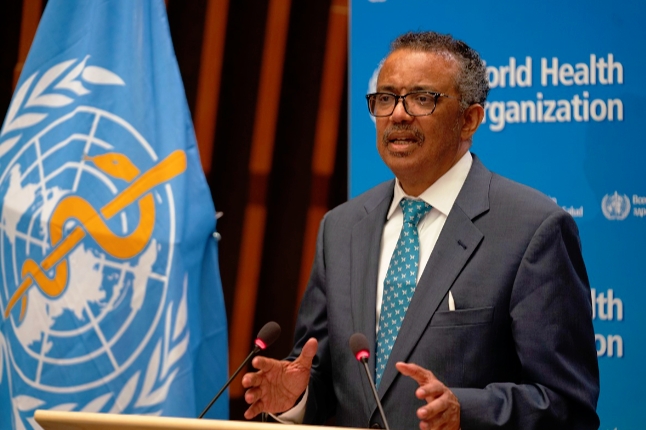For years since it’s inception, the family planning methods usage continue to register an upward rise in the country.
This is attributed to concerted sensitization by various stakeholders which has led to the uptake of birth contraceptives.
According to the UNFPA, the number of married women using modern contraceptives steadily rose to 57 percent in 2022, as compared to 32 percent in 2003 in Kenya.
In 2023, a related report published by Statista.com indicates that nearly 44 percent of women aged 15-49 years used contraceptives (as traditional or modern methods) in 2021 in Kenya.
“Among married women, or those in a union, the contraceptive prevalence rate was higher,posted at roughly 60 percent,” the study noted.

Contrasting among unmarried women, it reveals that the rate stood at about 23 percent.
In comparison to 2010, the research further found out that approximately 35 percent of all fertile-age women in Kenya adopted any form of contraception.
“This rate was at 48 percent among married women.”
There is a wide variety of family planning methods available, which includes hormonal options like pills, injections, and patches.
Others are implants, as well as barrier methods and sterilization.
But, with an hindsight, the sticky issue is the affordability of the methods among many women.
The general costs of seeking femiplan services continue to bite many families across the country.
Majority live in remote villages and urban informal settlements.
Coupled with the biting poverty level, the long distances covered to the health facilities to access services, continue to pose great concerns to most of the women.
Hormonal Pills cost around Sh100 per month, while Implants which are inserted into the arm, offer long-term protection (3-5 years), goes for Sh7,000.
A visit to various websites of local service providers by The Eyes Watch Health shows different price range.
Notably, one Femiplan Tablets 28’s which contains synthetic estrogen and progesterone hormones costs about Sh372.
To achieve 99 percent effectiveness in pregnancies prevention, the user takes it on a daily basis.
“She starts with the yellow pill, then upon completion, continue with the brown pills which contain iron to boost her blood.”
With shots administered after every 2-3 months, Injections provide a long-acting, and reversible contraception.
The price for a one-month supply of Patches is around KSh2,400.
Hormonal Intrauterine Devices (IUDs) are long-term contraception, and T-shaped copper inserted into the uterus.
To prevent pregnancy, its insertion process costs families between Sh2,500-4,000.

To address this pertinent issues, Selphine Atieno, the Community Empowerment and Media Initiative-Kenya (CEMI-K) Chairperson, is leading an advocacy for the free provision of family planning services in health facilities.
“Our mothers cannot afford these types of family planning methods. We want to ensure that the County Government of Kisumu fully factor them in their budget so that the mothers aren’t charged during visitation,” she said during a media interview held in Kisumu recently.
She cited the distance from Mowlem-Nyamasaria to Ragumo in Kisumu East,and Mowlem-Kisumu County Referral Health (KCRH), as some of the transport fare constraints.
Ms. Atieno said that they have begun grassroots community-led sensitization program to sell the idea.
This, she reiterated, will assist in championing for it during the public participation on Budget-Making processes spearheaded by the both the County Government and County Assemblies.
Echoing similar sentiments, Alex Akach,CEMI-K Advocacy Officer says that these can also be factored as policy.
“We advocate for increased allocation for health services especially in the family planning methods. The County Revenue Board should also consider it,” stated Akach who accompanied by his chairperson.
The existential gaps they have observed is the free supply of condoms and some drugs as a barrier method.
Condoms when used appropriately is effective in barring pregnancy.
Sterilization is done through permanent surgical procedures (Male Vasectomy and Female Tubal Ligation) to prevent pregnancy.
The consultation fees charged in most private health facilities is between Sh5,000 to Sh10,000.
To reduce costs, Akach advises most families to go for the IUCDs and Norplants which lasts for five years.
“They alsobring an advantage to a family to well-plan by creating an interval.”
Most Non-State Actors have partnered with both the government and private hospitals to provide free long-acting and reversible contraceptives.
In several facilities, the family planning services have been integrated into maternal and child health clinics.



